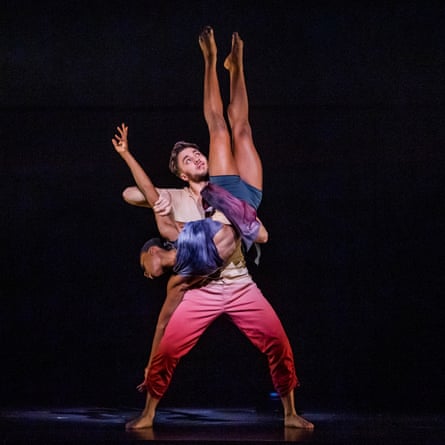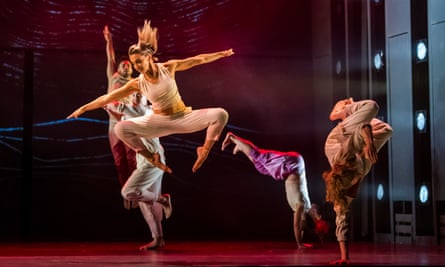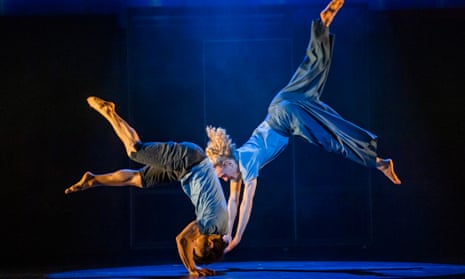A hip-hop dance show set to the songs of Sting? It seemed an unlikely proposition when ZooNation choreographer Kate Prince announced she was making Message in a Bottle. Even more so when it turned out the story threading the jukebox show together tackled the international refugee crisis.
It can be risky when dance approaches subjects as raw and real as civil war and families fleeing homes, dying at sea or being trapped in detention centres. Some previous attempts have been well-meaning but clunky; others are more successful, such as Crystal Pite’s bleakly beautiful Flight Pattern.
Prince, meanwhile, is known for shows (including Into the Hoods and Some Like It Hip Hop) that are bright, buoyant and funkily feelgood, which seems incongruous, but without skirting the darkness in this story of three siblings separated in exile, her angle is always hope. Does she pull it off? Yes, she does.

Alex Lacamoire, who worked on Hamilton and PT Barnum biopic The Greatest Showman, provides new musical arrangements. He spins together songs and fragments into a cogent soundtrack (recorded, not live) sung mostly by Sting himself, but also featuring guest vocalists Beverley Knight and Lynval Golding of the Specials. Some songs are directly relevant, such as Invisible Sun, written in Ireland during the Troubles and about surviving in a war-torn place. Elsewhere, Every Breath You Take functions both as the threats of watching guards and a desperate promise to a lost lover.
Playwright Lolita Chakrabarti is on board as dramaturg, and she has steered the show along a clear, well-paced narrative path. But the fact that scenes where women are abused by invading soldiers, or someone faces destructive grief by getting up to dance, are convincing, is down to the fierce commitment and sincerity of the dancers. The blistering cast attacks Prince’s sharp, tight rhythms, laced with pops and power poses, with a huge amount of heart, their technical tricksiness thrown off with casual grace.

As well as longtime collaborators Tommy Franzen and Lizzie Gough, Prince has enlisted Lukas McFarlane as associate choreographer. Best known as the endlessly emoting winner of TV competition Got to Dance, he brings a more commercial contemporary dance feel and very clearly signposted states of mind.
Playing one of the siblings, McFarlane is a magnetic presence (even if he can’t resist doing his signature flashy pirouettes and split leaps). As ever, Franzen shows incredible power, precision and control, and lets loose to Shadows in the Rain as a man crazed at being cooped up behind bars. Natasha Gooden is a beacon of warmth, with vitality rippling through her body; Nafisah Baba brings a more subtle, classical sensitivity. They all pull you in, even when the choreography can be somewhat primary-coloured, its staccato rhythms marching in uniform quavers.
Only one scene grates: that of Roxanne, which revolves around a trafficked woman (Baba) found by her husband in a red-lit brothel. She is drugged up and spun out, but the rest of the cast writhe sexily around the scenery, a bit too close to cliche.
Overall, though, this story of loving, losing and finding your way again is moving and hopeful. It has clarity, immediacy and mainstream appeal, and there’s no denying that the songs are great. Most importantly, it has an infectious, pressing energy that boils over the edge of the stage. It should be a big hit.

Comments (…)
Sign in or create your Guardian account to join the discussion